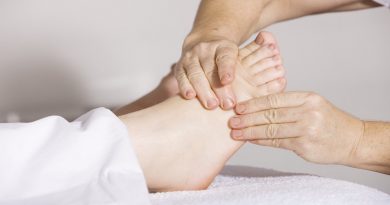5 Causes of Erectile Dysfunction That Have Nothing to Do with Age
Though commonly associated with ageing, there are many other causes of erectile dysfunction that have nothing whatsoever to do with age. Whatever the cause, it can be an extremely distressing and difficult condition to face up to – despite the fact that research suggests that around 52% of all men will experience erectile dysfunction at some point during their life.
So to shine light on what is a surprisingly common problem most men experience to one extent or another, what follows is a brief overview of five causes of erectile dysfunction that have nothing to do with age:

Medications
First of all, there are hundreds of medications and prescription treatments in use today that can have a significant effect on erectile performance. Particularly, medications used in the treatment of mood disorders and heart conditions have been linked with these kinds of side effects. The reason being that anything that has an influence on the way the neurotransmitters in your brain work or on blood flow throughout the body can have a significant and on-going negative impact on sexual performance.
Stress
One of the interesting things about stress is that those who suffer from it on a constant or near-permanent basis often do not realise this is the case. In addition, there’s also the kind of stress that accompanies positive experiences, which is often overlooked as inconsequential. In any and all instances, stress can have a severe impact on sexual performance – both immediately and long-term. Both in terms of the psychological impact of stress and the way in which the hormones released by the body in response to stress can detrimentally affect the function of key sex hormones.
Anxiety
The same also goes for anxiety, be it temporary or on-going. It’s largely impossible to avoid anxiety entirely in life, given the way in which it is a natural response to a wide variety of scenarios. Nevertheless, when anxiety becomes an everyday part of normal life, it can have a range of highly detrimental effects on both physical and mental health. One of which being erectile dysfunction, which once again may manifest suddenly or more gradually over a period of time. Of course, anxiety with regard to sexual performance and prowess in its own right can be a key contributor to ED. And it’s something of a vicious cycle – the more you worry about sexual performance and ED, the more likely you are to suffer further problems with sexual performance.
Neurological disorders
Though comparatively rare, ED can also be a symptom of a more serious underlying medical condition – perhaps one involving the central nervous system. Erectile ability can be affected by a wide variety of neurological conditions, including stroke, multiple sclerosis, Parkinson’s disease and countless others. Generally speaking, ED alone as a symptom is not sufficient to suggest that any such diseases may be present or manifesting.
Past and present substance abuse
Last but not least, while it’s no secret that use and abuse of drugs and alcohol can have an immediate though temporary impact on sexual performance, the damage can also be long-term. A variety of studies have linked both past and present substance abuse with ED – even in instances where previous alcohol and drug users had been clean and sober for many years. Nevertheless, there are still various avenues to explore in terms of treatment and reversal of ED, though always require the advice and involvement of qualified experts.
Useful Resources:
Healthexpress.co.uk
Mayoclinic.com
Nature.com
Netdoctor.co.uk

